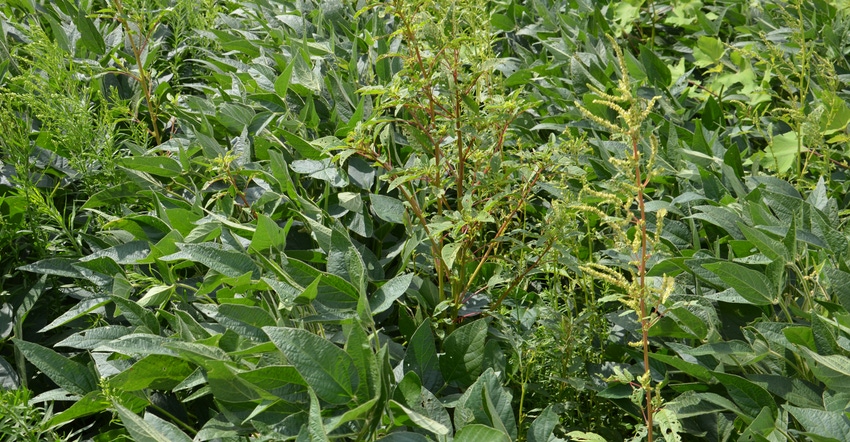
A speaker at a recent field day implied that applicators would need a special license to buy dicamba products now, creating confusion in the crowd. As it turns out, his information wasn’t correct. You don’t need a special license, Dave Scott says, but you must attend special training if you want to apply restricted-use dicamba products in 2018.
Scott is pesticide administrator with the Office of the Indiana State Chemist. In this second part of a two-series about dicamba changes, he clarifies how training required under new labeling requirements will be tracked in 2018. Read the first part of the series to learn who can buy and apply dicamba in 2018.
Here is information Scott provided about application training.
Who can provide training on restricted-use dicamba products? Only OISC-approved trainers — including Purdue University Extension staff, OISC staff and select industry cooperators — will be allowed to present the hourlong classroom training through traditional pesticide training venues.
What does the training cover? The training will cover legal application requirements for these products, including record-keeping requirements, weed management practices, buffer requirements, protection of susceptible crops, chemistry, mixing, handling, window of application, equipment preparation, resistance management, and associated application challenges and risks. The objective of the training is to prepare the applicator for the regulatory and practical rigors of applying these products safely and effectively, to maintain availability of this weed control option in the future.
Will people receive a certificate after the training? No certificate or special pesticide license designation will be issued. However, the training instructor and OISC will maintain a roster of those attending the required training, and will collect the applicator’s name, address and license number. Attendees must keep a record with the training date, location and who provided the training they attended as part of the mandatory label-required record-keeping for use of these products.
Is the training one time, or must you go every year? If these products continue to be registered for use after 2018, training may be an annual requirement. EPA will have to approve the continued use of these products after December 2018, and the training requirement may be revisited at that time. For now, you must complete training prior to using these products in Indiana in 2018. [Editor’s note: The products were originally granted a two-year registration period, which must be renewed for 2019 and beyond by EPA.]
Will out-of-state training allow someone to apply these products in Indiana? No. You must attend the mandatory OISC-approved dicamba training prior to applying any of the three new products in Indiana. These products include XtendiMax, Engenia and FeXapan.
Will dealers be able to answer questions about this process? We have sent them a separate notice specifically about the fact that products containing 6.5% dicamba or more are now restricted-use products. Anyone you buy these products from must have a restricted-use pesticide dealer registration issued by OISC. The dealer is required to keep specific records about the sale of all restricted-use products, including dicamba products, for two years.
These products can now only be sold to certified applicators “deemed competent” and licensed by OISC.
How does a grower get a license? Visit this OISC website. You can start the process toward certification there. You must pass a written exam.
Editor’s note: Part of this material was taken from public documents released by Scott. Additional details on dicamba use are available at OISC's dicamba herbicide updates web page.
About the Author(s)
You May Also Like




